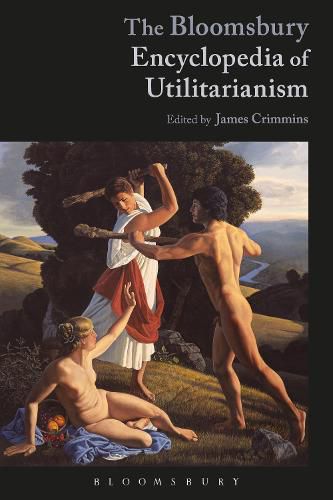Readings Newsletter
Become a Readings Member to make your shopping experience even easier.
Sign in or sign up for free!
You’re not far away from qualifying for FREE standard shipping within Australia
You’ve qualified for FREE standard shipping within Australia
The cart is loading…






The idea of utility as a value, goal or principle in political, moral and economic life has a long and rich history. Now available in paperback, The Bloomsbury Encyclopedia of Utilitarianism captures the complex history and the multi-faceted character of utilitarianism, making it the first work of its kind to bring together all the various aspects of the tradition for comparative study.
With more than 200 entries on the authors and texts recognised as having built the tradition of utilitarian thinking, it covers issues and critics that have arisen at every stage. There are entries on Plato, Epicurus, and Confucius and progenitors of the theory like John Gay and David Hume, together with political economists, legal scholars, historians and commentators.
Cross-referenced throughout, each entry consists of an explanation of the topic, a bibliography of works and suggestions for further reading. Providing fresh juxtapositions of issues and arguments in utilitarian studies and written by a team of respected scholars, The Bloomsbury Encyclopedia of Utilitarianism is an authoritative and valuable resource.
$9.00 standard shipping within Australia
FREE standard shipping within Australia for orders over $100.00
Express & International shipping calculated at checkout
The idea of utility as a value, goal or principle in political, moral and economic life has a long and rich history. Now available in paperback, The Bloomsbury Encyclopedia of Utilitarianism captures the complex history and the multi-faceted character of utilitarianism, making it the first work of its kind to bring together all the various aspects of the tradition for comparative study.
With more than 200 entries on the authors and texts recognised as having built the tradition of utilitarian thinking, it covers issues and critics that have arisen at every stage. There are entries on Plato, Epicurus, and Confucius and progenitors of the theory like John Gay and David Hume, together with political economists, legal scholars, historians and commentators.
Cross-referenced throughout, each entry consists of an explanation of the topic, a bibliography of works and suggestions for further reading. Providing fresh juxtapositions of issues and arguments in utilitarian studies and written by a team of respected scholars, The Bloomsbury Encyclopedia of Utilitarianism is an authoritative and valuable resource.